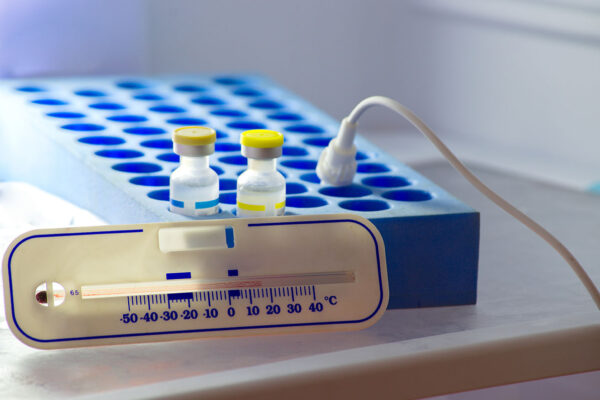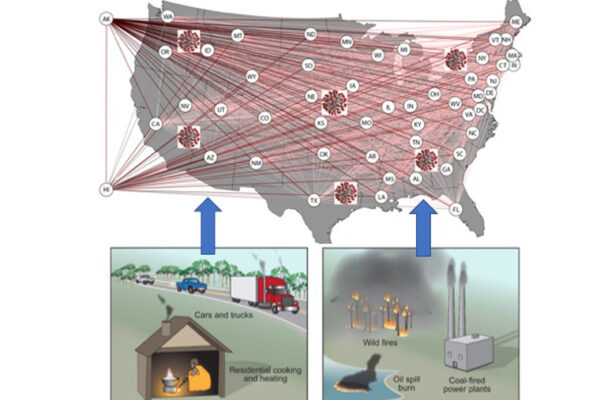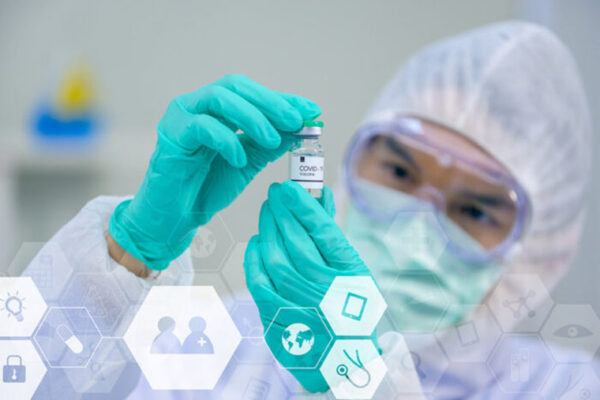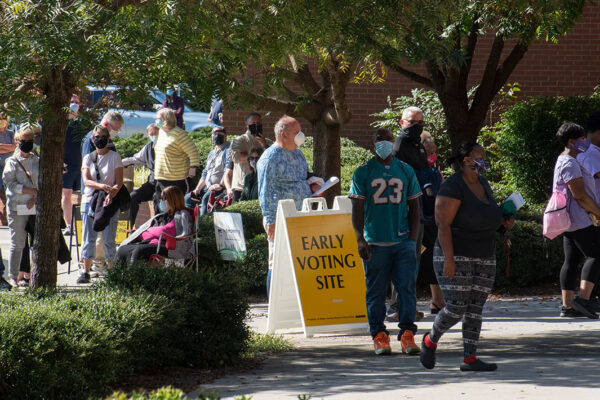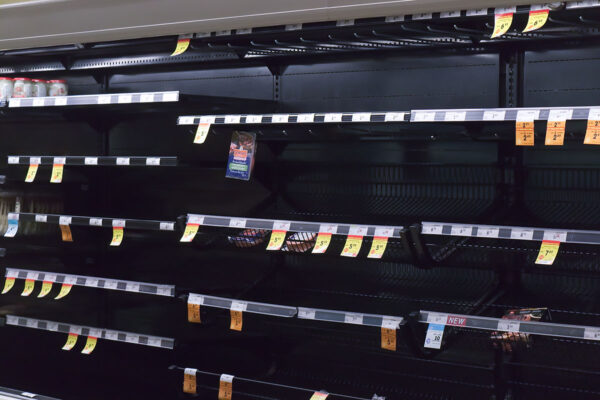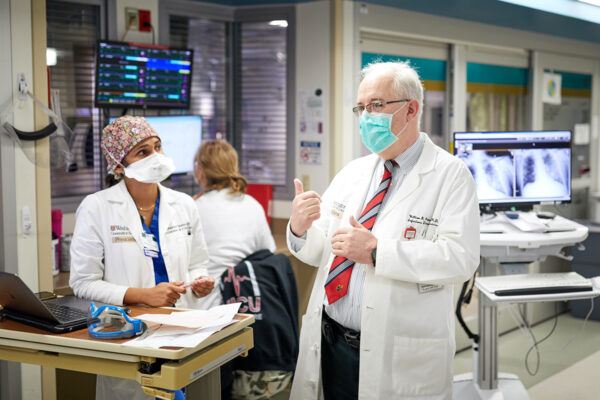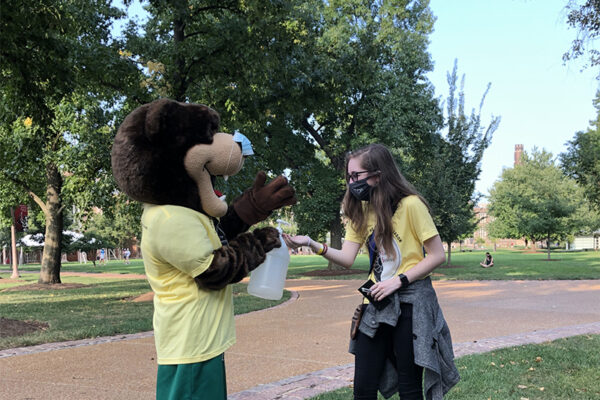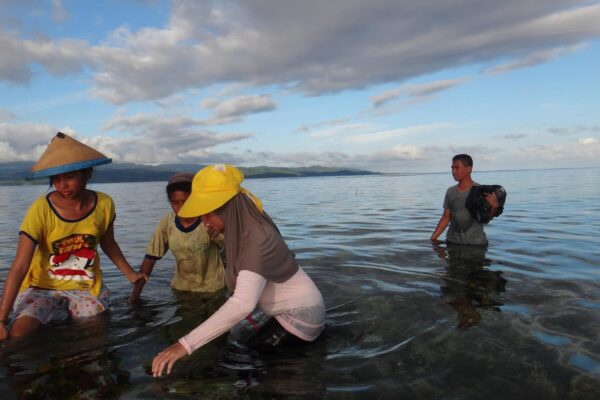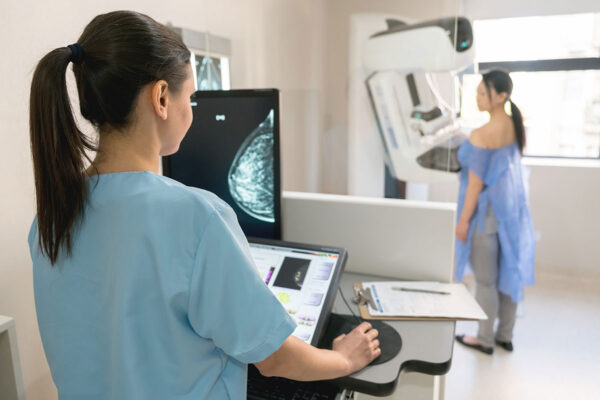The vexing vax supply chain
The cold, hard fact is: Pfizer blazed a trail in creating a touted COVID-19 vaccine, but now it must help to equally pioneer an unprecedented way to distribute the drug across the United States and the globe, says a supply chain expert at Washington University in St. Louis.
Pollution and pandemics: A dangerous mix
Research from the lab of Rajan Chakrabarty in the McKelvey School of Engineering at Washington University in St. Louis has found a close relationship between certain pollutants and the spread of COVID-19 through the United States.
Washington University begins recruiting participants for phase 3 COVID-19 investigational vaccine clinical trial
The School of Medicine is a testing site for a phase 3 clinical research study to evaluate the safety and efficacy of an investigational COVID-19 vaccine candidate from the Janssen Pharmaceutical Companies. The school will enroll up to 500 adults ages 18 and older in the St. Louis region.
Voter participation predicts compliance with social distancing
Americans who vote are more likely to practice social distancing during the COVID-19 pandemic than people with a lower sense of civic duty — regardless of political affiliation, according to a new study involving Washington University in St. Louis.
Boeing Center, Olin faculty behind special edition journal, recent research
Academics who assembled at Olin Business School at Washington University in St. Louis offered such relevant presentations, research and ideas — a full nine months before a pandemic derailed, if not stymied, global operations — that it produced a special edition in scholarship: how to pay for production and distribution today and manage global risks in a highly uncertain environment. Supply Chain Finance and Fin Tech Innovations was published Oct. 1 as the 14th volume of Foundations and Trends in Technology, Information and Operations Management.
Immune modulator drugs for COVID-19 focus of major NIH clinical trial
A new, international phase 3 clinical trial led by the Washington University School of Medicine and funded by the National Institutes of Health (NIH), will investigate the potential of three drugs to tame a dangerous inflammatory response seen in some COVID-19 patients.
WashU Expert: Forget plexiglass, debaters just need 4.5 feet, smart airflow
Four and a half feet — as long as debaters are at least this far apart, with airflow directed back at them, the risk of infection with SARS-CoV-2 is minimal to none, say researchers at Washington University in St. Louis.
Student health ambassadors promote masks, health checks and physical distancing
The Washington University Student Health Ambassador program is a new peer-to-peer initiative designed to protect students from the spread of COVID-19. Students are dispatched daily to locations across campus to remind their peers to wear masks and to confirm students have completed their daily health screenings.
Hope in a time of uncertainty
Unprecedented times present the opportunity to develop innovative, lasting and positive change. It’s in this spirit that the 8th McDonnell International Scholars Academy Symposium will proceed, beginning with a virtual global town hall meeting Oct. 8. The event, featuring scholars and leaders from around the world, is free and open to the public.
Cancer centers to address pandemic’s impact on cancer prevention, treatment
A consortium of 17 U.S. cancer centers, including Siteman Cancer Center at Barnes-Jewish Hospital and Washington University School of Medicine, are working together to better understand the consequences of the COVID-19 pandemic in delaying cancer detection, care and prevention.
View More Stories

